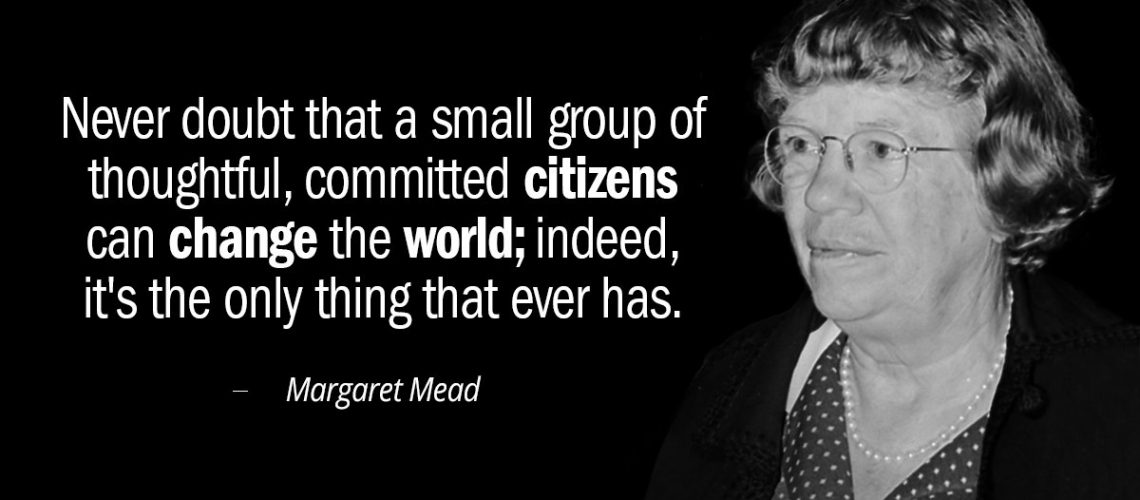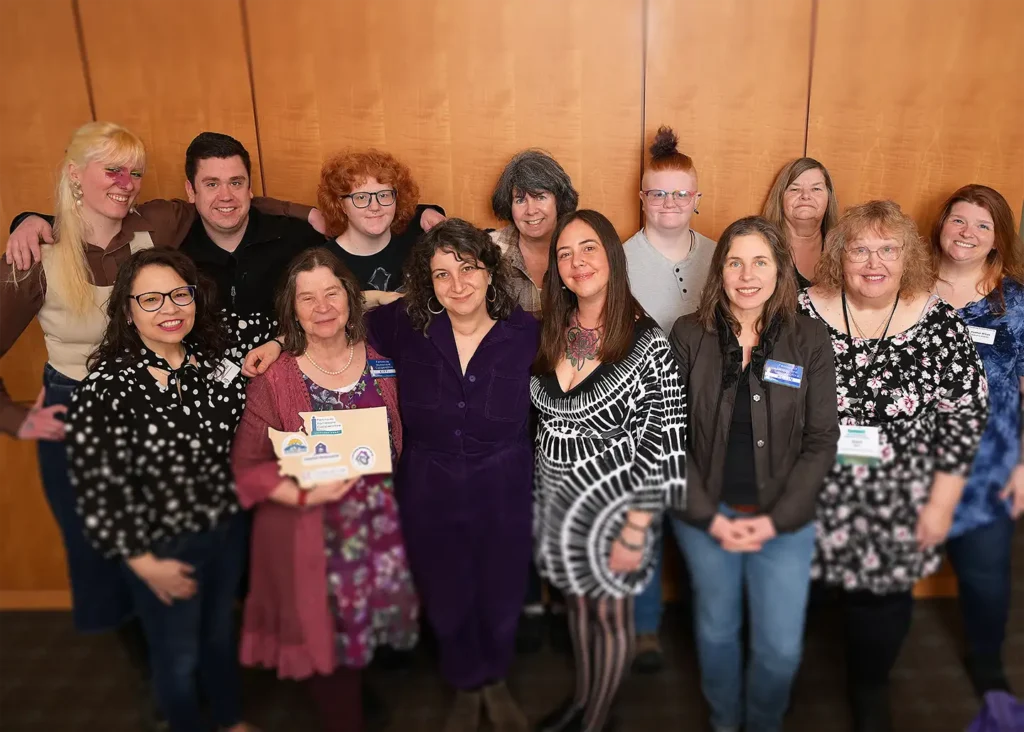Anthropologist Margaret Mead once described to a college class what she found to be the first sign of cultural civilization. To the surprise of many students, the answer wasn’t clay pots, or fishing hooks, or hunting arrows. The earliest evidence of civilization, she said, was a 15,000 year old skeleton with a healed femur that had been previously fractured. For the record, the femur is the longest bone in the body, which without modern medicine, would take nearly two months to heal.
In those days, anything that had an injury like that would mean a death sentence. They either become easy prey for their predators, or succumb to their wounds. Despite that, archeologists found that the femur had been fully healed before the person’s death. This discovery suggested that not only had this person survived this injury, but that other people, their friends or family perhaps, took many measures– and probably risked their lives– to protect them and tend to their needs as they recovered. What’s especially astounding is the fact that the people who helped him didn’t even have to help. In fact, it might have been easier for them in the long run to abandon him and keep moving to avoid predators and catch prey. Instead, they stayed with him, reset the bone, gathered food and water for him, acted as his crutches, and probably even helped him poop once or twice. In that time, I bet they got to talk a lot.
So, surprise! Civilization began with caregiving.
Over time, the human race has learned that the more resources we share between each other, the longer everyone’s lives could last. In an evolutionary sense, it’s how we survived. It’s a core reason why there are over 7 billion humans living today, and why Kane Tanaka lived to see 118. Kane must have had amazing caregivers.
In today’s civilization, our innate need to help and be helped exists by profession. We have doctors, lawyers, nurses, housekeepers, counselors, teachers, cooks, reiki channelers, the list goes on. Anything you do, from giving vital medicines to making people laugh, exists to help others in some sort of way. At least, that’s the intention. But even when we are off the clock, we still find ourselves holding doors open for strangers, helping our friends move, stopping in the road for lost or stray pets. We all figure “Hey, if it was me, I would want someone to help too.” It’s almost like an unspoken rule that the more supportive and compassionate you are to others, the more support and compassion you will receive. Like karma— what goes around comes around.
A key benefit to exchanging help and support is simply social interaction. I don’t know about you, but if I’m having an especially bad day I try not to interact with anyone any more than I need to. But if the woman at the grocery checkout makes an effort to share a joke or compliment, or even just calls me “honey” like a grandmother would, I always walk out feeling a little bit better. Simply the fact that the effort was there to extend a kind word, whether she knew I needed it or not, gives me a small sense of hope and worthiness. Normalcy. A reminder that whatever it is bothering me, I still am a human worthy of compassion. For some elderly folks receiving care, just a few minutes of small talk can change their perspective in a positive way. Humor, smiles and a sit-down over coffee sends one’s brain the message “HEY! You’re not in danger anymore! You can relax and stop defending yourself now!” These interactions not only help a person bond with another, but also makes it more likely that they will accept the help and care they need. It’s not as scary or big of an idea after this bond; it’s a bit more normalized.
Forming and maintaining strong relationships with others has its own health benefits too— they can help regulate the nervous system, reduce stress and anxiety, strengthen the immune system and ultimately, increase longevity and lifespan. Laughter truly does seem to be the best medicine, and reassuring hugs don’t hurt either. In fact, these bonds with others are a core intuitive need across the planet. Humans are social creatures. We’re a little bit healthier, happier, in the presence of loved ones. All these benefits are a huge part of why CHC provides in-home care, to allow people to age in place near the people and things they love.
So if we live in a world that thrives on helping one another, why don’t some people want help? There are many reasons one would refuse help, even if they desperately need it. At its core, though, is the uncomfortable feeling that accepting help means you’re no longer independent and supporting yourself. It can mean less control over your life, coupled with your body, and could leave you feeling as if you don’t deserve the care because you can never repay anyone for that time.
Older generations, especially men, seem to have gotten a message that needing help equates to weakness, and “pulling yourself up by your bootstraps” as a means to reach your goals is a feat to take pride in. Becoming unable to fulfill your own need, no matter the circumstances, can be seen as a failure of the self, impacting pride and ego by turning it into shame. Without that sense of dignity, it’s easy for one to lock into the mindset that they are “not worth” helping. But here’s the “radical” opinion you’ve been waiting for: any person, as long as they are alive, is worthy of help and support. Is that so hard to believe, as a civilization that was birthed under the theme of selflessness? Would it be terrible if humans depended on other humans?
The antidote for these situations isn’t necessarily encouraging people to find more ways to support themselves, but to expand the boundaries around what makes a person dignified or not. To reframe what it means to receive help, and to make that help accessible. Huge positive change could come simply by including the person in the conversation about what life will look like in the future. And not necessarily to see it as a “doomsday prep” scenario, but viewing the help they get as tools that enable the person to experience life as fully and openly as possible. A wheelchair could be the difference between a 20 minute grueling crawl to the bathroom, and just going to the bathroom. A prescription could allow one to focus on their hobbies. Loved ones, caregivers, could be the difference between a quiet day and a day filled with laughter. The very things we see as hindrances to our daily lives, are what allows us to live our daily lives. Just in a different way. I can tell you for one, caregivers are very creative problem solvers, thinking outside the box and working around inaccessibility wherever it shows up. Some methods may be unconventional, but they surely get the job done.
If you’re ready to experience person-centered care, check out our services page.

